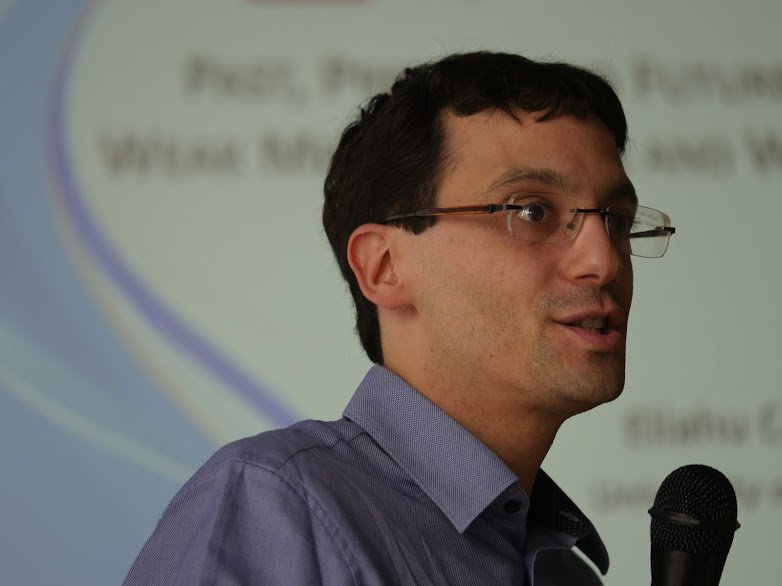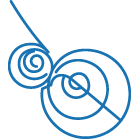Dr. Cohen's article "Introduction to Weak Measurements and Weak Values", Quanta 2013; 2: 7–17, written in collaboration with Prof. Boaz Tamir, has recently reached the impressive 100 citations in Google Scholar. On the occasion of this achievement, we have contacted Dr. Cohen with a list of questions. He kindly agreed to be interviewed and provided his answers for the readers of Quanta.  Q1: What do you think about quantum mechanics? A1: For me, quantum mechanics is a beautiful creation. I admire its mathematical elegance and immense explanatory power. It has been highly intriguing for me when I first encountered it and since then my interest kept growing and growing. It seems we are fortunate to live in this particular era in which we can still study the conceptual problems conceived in the last century regarding the foundations of quantum mechanics, but at the same time explore new quantum applications made possible in the 21st century through the second quantum revolution. I believe we still have to find the optimal ways of representing and extending the applicability of quantum theory. Q2: What is your favorite subject: physics or mathematics? A2: I chose to do my BSc in Mathematics and Physics, even though at the beginning I was mainly interested in Mathematics. With time, I fell in love with the imperfection of man-made physical models and the myriad of open questions in modern physics. The turning point was clearly the fourth semester course on quantum mechanics I took at Tel-Aviv University. By the end of the fourth semester I understood that my favorite subject is physics and this has not changed till now. Q3: At what age did you decide to become a scientist? A3: I got for my 7th birthday a lovely book about science for kids. The decision started around that time and was finalized when I took a course on exact sciences a year later. Q4: What is the current big problem, which you are working on? A4: I am working on several different problems at the moment with colleagues and students. One of them, following our works published in Science Advances and Entropy, is focused on deriving as many results as possible (both basic and applied science) from locally-consistent uncertainty relations. By taking indeterminism as an axiom, we want to see how far we can get, especially in the description of quantum nonlocality. In another attempt (which is not completely unrelated to the previous one) we seek a better understanding of the classical-quantum boundary which entails further analysis of measurement and collapse within quantum mechanics, as well as exploration of the role that quantum mechanics may play (e.g. through quantum discord) in macroscopic (possibly gravitational) systems. Finally, I try to harness the quantum formalism for suggesting new imaging and detection schemes. In all the above we occasionally use weak measurements, as reviewed e.g. in Quanta, as a theoretical and experimental tool. Q5: What advice would you give to young minds who are just entering for the first time in the quantum world? A5: I think a good mathematical understanding, e.g. of linear algebra and partial differential equations, could be very helpful for understanding the basics and subtleties of the quantum formalism. I would advise young minds to invest enough time in these formal mathematical studies, but at the same time to bear in mind and skim through the many successful results (both theoretical and practical) emerging out of the quantum formalism. This way, the inner fire may keep burning while going through the conceptual and mathematical challenges posed by quantum mechanics. I believe you will see that a deep understanding makes all struggles and efforts worthwhile. I would also suggest to choose the best teacher you can find, as well as a few good textbooks (both older and newer) written by experts, because these will make all the difference for you (do not rely on popular texts). I think it is important to complement the formal studies with independent exploration of related materials and exercises because these will corroborate each other and will eventually provide a better command of the subject. Eliahu Cohen is Senior Lecturer at the Faculty of Engineering, Bar Ilan University, Ramat-Gan, Israel. He is a member of the Bar-Ilan Institute of Nanotechnology and Advanced Materials and the Center for Quantum Entanglement Science and Technology. He is also the head of the Quantum Engineering program at Bar-Ilan University. He did his PhD at Tel Aviv University under the supervision of Professors Yakir Aharonov and Lev Vaidman. He then became a postdoctoral research associate at the University of Bristol (specializing in quantum information with Prof. Sandu Popescu) and a research associate at the University of Ottawa (specializing in quantum photonics with Prof. Ebrahim Karimi). Dr. Cohen has been exploring, theoretically and experimentally, various types of advanced quantum measurement techniques including: weak, sequential, partial, interaction-free, nonlocal, protective, and robust. He has also contributed to the study of entanglement and nonlocality, both kinematic and dynamic. He is interested in various photonic applications of the above, mainly for metrology, sensing, imaging and computation. |

